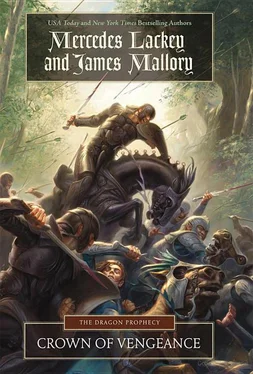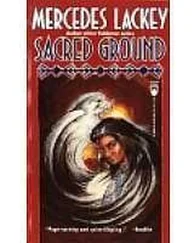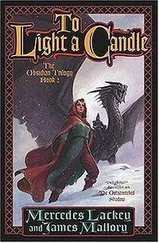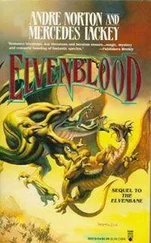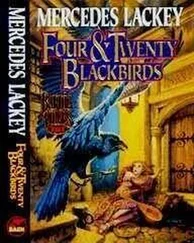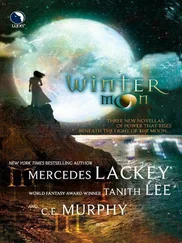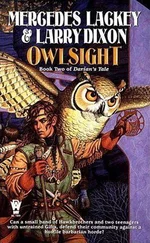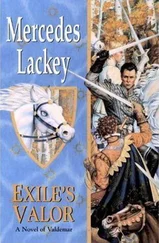“It seems unlikely,” she said.
“I know,” Thurion said quietly. “Most of my teachers think the last part of Amrethion’s Song is nonsense, or some code we have lost the key to. But we have to memorize it anyway. I never thought I would be tired of scrolls and of reading—but that was before I spent so many candlemarks in the Library.”
“But come! Share our pain,” Namritila said. “You are High House raised, you will have heard parts of The Song of Amrethion Aradruiniel all your life! Yet what are we to make of—oh, go on, Thurion, your voice is better than mine. Give her the verse about the Throne!”
Thurion smiled and nodded. “Here’s one I warrant you haven’t heard, Vielle:
“For twice upon five hundred lives, the Throne of Shame shall sleep unknown
And Celephriandullias-Tildorangelor a haunt of shadows lie
The Happy Lands shall ring to blood and battle through the wheel of years
While all who husband hidden secrets die…”
“But Celephriandullias-Tildorangelor is a nursery song!” Vieliessar said in protest. “You know it, I’m sure: ‘The city of Celephriandullias-Tildorangelor was as bright as jewels. White were its walls and sun-gold-gleaming were its roofs, and its ruler was Amrethion Aradruiniel, and his meisne was a hundred knights. The first was Prince Cirandeiron, who rode a white horse and had armor of gleaming silver. His destrier’s armor was silver, too, and there were diamonds set in his shoes. The second was Queen Telthorelandor, who rode a golden horse and had armor of brightest gold. Her destrier’s armor was golden, too, and he was shod in cairngorms and purest gold. The third’—”
“Yes, yes, yes—it goes on forever!” Arahir protested laughingly. “A hundred knights for the Hundred Houses, each more beautiful than the last. I wish we studied that instead of Amrethion’s Song—I’m sure it makes as much sense!”
* * *
But alone in her rooms at the end of the evening, Vieliessar was unable to dismiss the hradan Maeredhiel had laid upon her so easily. There must be more to her words—to Celelioniel’s belief—than an esoteric joke, and Vieliessar became determined to discover what it was. But it was far more difficult than she hoped. To find a copy of the text was easy enough. But The Song of Amrethion Aradruiniel filled twenty close-written scrolls, and there were tenfold more written about it. After that night, the nine of them would often gather in the Common Room at the end of the day. Vieliessar had been doubtful of her welcome at first—she was no Postulant, to understand their talk of magic—but Thurion’s friends seemed as interested in her tales of keeping the stillroom ready for use as she was in their tales of using it, and she was never made to feel less than they by the things they found to talk of.
Not all the Postulants were so welcoming. Many, seeing her in the Common Room in the grey tunic and skirts of a servant, spoke ostentatiously of their studies in magic. Vieliessar quickly realized Thurion’s circle was made up of those who did not care.
“‘Stars and clouds point the way…’” Thurion mused one evening, turning his teacup around between his palms and frowning down at it as if the fragrant amber liquid were a scrying pool. “I am not sure what that phrase can mean. That the stars show the time, and the season, and even hold Foretellings for those skilled to read them is something everyone knows. And of course omens may be taken from the sky and the weather—providing the weather has not been caused by a Mage bringing rain or warmth out of season!” he added, smiling.
“I still say it is a copyist’s error, and that it should read: ‘when stars or clouds point the way,’” Mathingaland said determinedly.
“But then they wouldn’t be pointing together ,” Thurion argued. “And without those syllables, the stanza doesn’t scan,” he added.
“It’s madness to look for sense in Amrethion’s Curse, ” Namritila said. “I do not think it is a part of the Song in the first place. It must be a satire, like Manurion’s Ride , or, or, or The Wedding of Inglodoth !” she finished triumphantly.
“If it were a satire, ’Tila, we would surely know that much, even if we had lost the meaning. It takes the same form as all the prophecies set into The Book of Celenthodiel . It just doesn’t make any sense! Consider: ‘When scholar turns to sword, and warrior to peace,’” Arahir said. “Everyone knows that komentai become scholars, not the other way around. And does a warrior turning to peace speak of the komentai’a or of something else? Even scholars will fight when they or their House are in danger, anyway, so how can one say they ever turn to peace?”
“Of course, the opening section should be: ‘When scholar turns from sword, and warrior to peace,’” Mathingaland announced firmly. “The rest of the line is a riddle for philosophers, not for Mages. If any of us could answer those questions, then we could solve Aradruiniel’s Prophecy, lift the Curse, and restore the Unicorn Throne.”
Arguing about the meaning of songs or poems was a time-honored way to pass an evening, and the young Postulants were entirely willing to make The Song of Amrethion Aradruiniel their text, even without the excuse of explaining it to Vieliessar. Unfortunately, none of their arguments had yet produced any answers. They had argued the opening lines since Midwinter, and would probably still be arguing them come Midsummer.
* * *
But soon it was Storm Moon, and Vieliessar was no longer able to spend pleasant evenings with Thurion’s friends, for this was the servants’ busiest time. The Sanctuary did not run on the same calendar as a Great Keep did: there, the inventories of blankets and linens were taken twice a year, when winter things were changed for summer. Here, the inventory was done once a year, just before the Candidate Caravans arrived. And so she set the matter of Amrethion’s Song aside, for she doubted Thurion and his friends could spin truth from riddles where generations before them had not. To them it was a pleasant pastime, a game of scholarship. And almost—almost!—she agreed, and yet …
Celelioniel had believed—so deeply she had set her will against the War Princes of the Hundred Houses to preserve Vieliessar’s life.
And Vieliessar did not know why.
Yet.
* * *
The first Candidates did not arrive until Flower, then made up for their delay with a vengeance. This meant long days for everyone—and overcrowding, chaos, and tents pitched across the fields of Rosemoss Farm as if the Sanctuary were under siege. It would have been child’s play for Vieliessar to vanish into the crowds of people coming and going, and for the first time in many moonturns she revisited her dreams of escape. But she had been fourteen last Rade: old enough to know no Free Company would follow one still a child. In Arevethmonion she had seen texts on battle, on strategy, on arms. She could not train herself in the skills of a knight, but she could learn about them against the day she could order knights against Caerthalien.
I shall go next spring. Next spring.
She did not have many free moments to consider her plight, for in addition to an influx of new Candidates, this was the season when those princes from beyond the Mystrals made their luck-sacrifices to petition for good fortune in the coming War Season. Only the High Houses in the West might dally and make their visitations in Sword itself—and so from Storm to Sword, the stones of the Shrine ran red with blood.
Читать дальше
